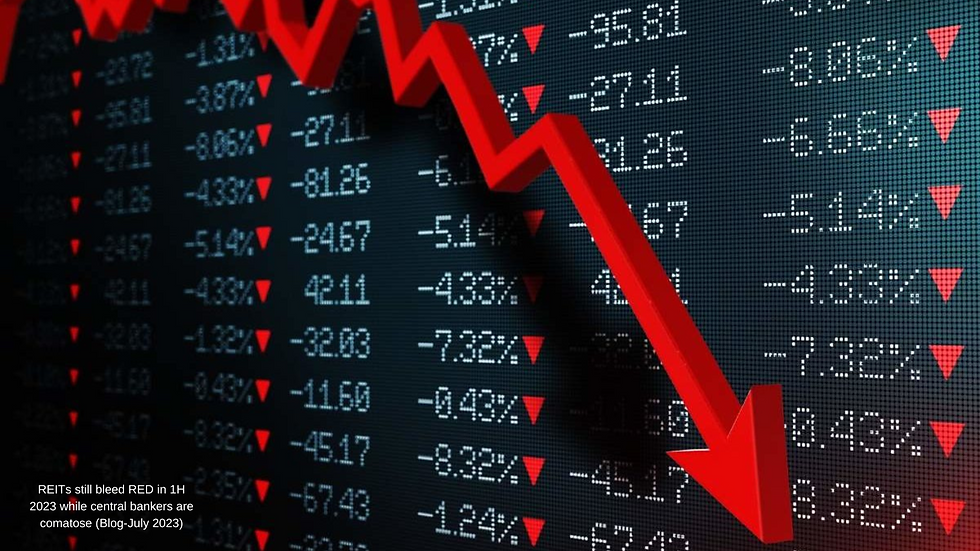STEADY THE MARKETS ARE JUST SCARING ITSELF
- by Gabriel Yap

- Nov 18, 2017
- 3 min read
02/2016-
The first 3 weeks of 2016 witnessed one of the greatest market panic and despair I have ever since, since the Global Financial Crisis (GFC) in 2008.

Measured by its severity, the asset classes affected, its worldwide impact and the negativism it arouse among market participants, institutional or retail, the current level of negativism has probably hit a new record.
Noteworthy too is that few of the recent market corrections that we have seen in this current decade after the GFC are related to weakness in the companies’ assets or management fraud, but were the result of market conditions brought on by investor changing psychology, the interconnected finance market and the undue focus on weakness of China’s economy.
Let’s take these pessimistic issue one at a time.
Admittedly, the greatest bugbear is China and yes, China’s economy has certainly weakened and being the 2nd largest economy at US$10 trillion, it has negative ramifications.
However, if trade slows in China (as it is happening, but only uncertainly is how much?), there’s a big deal to many commodities exporting Emerging Countries like Indonesia, Malaysia, Brazil and South Africa, but what is the actual impact on Singapore? Is it so severe as to depress the FTSTI by 15% in 2015 only for another 14% huge decline in just the first 3 weeks of January 2016? (Yes the FTSTI almost lost as much as it did in the first 3 weeks of the year as it did the whole of 2015). Is this not overshooting on the downside?
So what about collateral damages from the huge fall in the Shanghai and Shenzhen stockmarkets?
The Chinese stockmarkets is not where big China companies like Baidu, Alibaba, Tencent (they are listed in the US and HK) shop for financing. It has become more like a casino in 2015 when it rose from 2005 in Jun 2014 for the Shanghai Composite to more than 5,000 in Jun 2015, only to crash to 2,900 in Aug 2015. Thereafter, it put on another 700 point surge to Nov 2015. Thus, for it to retest its low on 3rd week of 2016 is a normal technical price behavior and is price correction, not a crash as what popular media would like to play out the story to hawk prime time.
China’s missteps with the yuan is certainly a real source of anguish. However, it would be too bearish to interpret China’s slowdown as being able to drag the world’s economy into a global recession. So certainly, the market has over shot itself on this footing. Perhaps the smart investor should take a step back and seriously ask – “Has China’s economy worsened materially of late” to or is it media hype?
Then what about falling oil prices?
To me, this is where I think markets have become real myopic – in simple Economics 101, when the price of something you need goes down substantially, you are certainly better off. But what do the markets suggest? Yes, the falling markets seem to suggest that we are worst off – is it a case of markets turned upside down?
Popular media seems to have painted a gloomy picture of US shale gas producers, but failed to point out that the US is STILL a net importer of oil despite huge progress in shale gas exploration technology and new oil wells being drilled, funded by private equity or oil funds.
The fact is that the US still imports US$76 billion of oil in the first 11 months of 2015! So the US is better off, not worst off by the huge price drops.
Once again, this sell off and the accompanying negativism is an exemplification that global markets react to all sorts of news and data. However, during a selloff, a lot of bad things seemed possible, but that does not mean that these bad things will happen. Yet, investors’ behavior is to focus their selling such that these bad things already seem inevitable –
Welcome to the world of Negativism, which knows no limits.
As smart investors, I have always encouraged one to always be skeptical of things you read, avoid the popular media which tend to trumpet and thereby worsen the news of the day and do your own homework and analysis.
I have always considered that being a successful skeptic is one of the most important requirements for successful investing. Skepticism is to question what popular media question as the quality of China’s slowing GDP growth and its impact on stocks. With skepticism, you will be able to know when markets actually are scaring itself and analyse financial events better and make a bountiful when others are fearful.
So don’t throw the baby out with the bath water. Be steady and pick up the bargains when markets are scaring themselves.




Comments